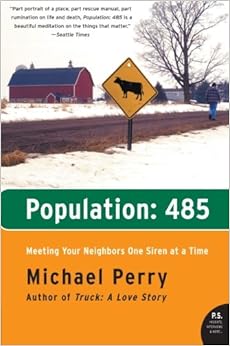This past Wednesday 25,000 volunteers gave away half a million books across America. World Book Night spreads the love of reading person to person. Why?
Reading is fun.
And reading changes lives, improves employment opportunities, social interaction, enfranchisement, and can have a positive effect on mental health and happiness. Book readers are more likely to participate in positive activities such as volunteering, attending cultural events, and even physical exercise.
Each year on April 23 – William Shakespeare’s birthday and the International Day of the Book – people go out into their communities and give free paperbacks to light and non-readers.
These aren’t children’s books. World Book Day started in the UK to distribute free books to children. The goal of World Book Night is to seek out adult readers wherever they are.
 As a volunteer again this year, I distributed 20 copies of Elizabeth Wein’s Code Name Verity. Because I loved this book for the power of its story, I knew it would be easy to find takers for this gift. In October of 1943 a British spy plane crashes in Nazi-occupied France. The pilot and passenger are best friends. Maddie is left to die, and Verity is arrested and interrogated by the Gestapo. It’s a mind-game of a novel about survival and how far true friends will go to save each other. It’s the kind of book that makes reading pure pleasure.
As a volunteer again this year, I distributed 20 copies of Elizabeth Wein’s Code Name Verity. Because I loved this book for the power of its story, I knew it would be easy to find takers for this gift. In October of 1943 a British spy plane crashes in Nazi-occupied France. The pilot and passenger are best friends. Maddie is left to die, and Verity is arrested and interrogated by the Gestapo. It’s a mind-game of a novel about survival and how far true friends will go to save each other. It’s the kind of book that makes reading pure pleasure.
So it was fun to drive through McDonald’s in Ithaca and surprise the cashier with a free book. “Really? Free? Really? Heck yes.”
“I walked to work today thinking I hadn’t read a good book in too long. This looks good. Thanks,” said the teller at Alternatives Federal Credit in Ithaca.
At the post office in Brooktondale, a gentleman patron accepted a copy for his wife who waited out in the car for him. The men at Caroline Town Barns gladly took two copies. Last year they took three copies of Michael Perry’s Population 485 which is a memoir about being an EMT in a small rural community. The subtitle: Meeting your neighbors one siren at a time. 
When I stopped for gas at the DandyMart in Slaterville Springs I had no problem giving away more books. Inside a young man in Carhartts stood in front of the cashier as he purchased a Mountain Dew. I asked him if he’d like a free book and his response was unequivocal.
“Yes, why, yes I would. Thank you,” he said. The clerk asked if she could have one too. Last year she’d read Population 485 and told me she spent her lunch hours reading it. When she brought it home over the weekend to finish it, her 11-year-old daughter challenged her to a reading contest. Now this single mother has all three of her kids engaged in a monthly reading challenge. Whoever reads the most books wins a new book. She plans to take them to New York City for Book Con!
My last free book I delivered to my neighbor, Emily. Her husband, Max, passed away six months ago. Over the past few years, I had loaned her several history books and thought she might really enjoy this story as it sweeps you away to another time and place. When I knocked on her front door I heard her dog, Ari, bark and two women talking.
A strange woman opened the door and packing boxes stood stacked floor to ceiling.
“Is Emily home?” I asked.
“Emily!” the petite lady called over her right should. “Hi, I’m Rosie, her sister. Come in,” she said. I stepped inside and closed the door. The smell of medicine lingered. Max had been sick many years.
“Oh my,” Emily threw her hands up in the air. Rosie took the book from my hands and read the back cover. I grabbed hold of Emily’s hands and pulled her close for a hug.
“Oh this sounds good,” Rosie said.
“You might read it first then Rosie. I see Emily is too busy right now to read a novel,” I said.”You’re moving?”
Packing up her lifetime of memories, Emily needed a friend more than a book in the moment. And I needed to hear her story of what next and where she planned to go and do and see.
Stories. Books. Friends. Community. Small Planet.

Beautiful story!